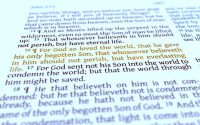車を運転してゆくのは…

サリー:「車を運転してゆくのは、一体どういう人たちなの?」/ チャーリー・ブラウン:「働きに行く人たちだよ‥」/ サリー:「働きに?」/ チャーリー:「昔はぼくらみたいにスクールバスを待ってたもんさ… 今じゃ一生毎日働きに行かなきゃなんない‥」/ サリー:「ヤレヤレ! それ一体誰のアイデア?」// – チャールズ・M・シュルツ (1922 – 2000): 『ピーナッツ』(【訳】谷川俊太郎 (1931 – )) (RundalonによるPixabayからの画像) / (F. MuhammadによるPixabayからの画像) / (F. MuhammadによるPixabayからの画像) / (EB PilgrimによるPixabayからの画像) (Google Translateのエンジンを使用した、Sound of Textによるテキスト読み上げ) More »







![IMAGE: What is the nation's treasure? The will to (achieve) enlightenment is the treasure, and one who possesses it is the nation's treasure. Therefore there is an old saying that a string of (large) jewels is not the nation's treasure; the nation's treasure is one who lights up a (small) corner of the world [one who brightens the world at his corner / one who shines light into a dark corner].](https://www.ok312.net/wp-content/uploads/2020/07/candle-1285146_640-200x132.jpg)














![IMAGE: The grass is greener on the other side of the fence. [The grass is always greener on the other side of the fence.] / Apples on the other side of the wall are the sweetest.](https://www.ok312.net/wp-content/uploads/2019/01/landscape-2636427_640-100x67.jpg)









![IMAGE: Fish and guests stink after three days. [Fish and company stink in three days.] / The first day one is a guest, the second a burden, and the third a pest.](https://www.ok312.net/wp-content/uploads/2018/12/fish-3646477_640_stranger-2861954_640-100x75.jpg)


